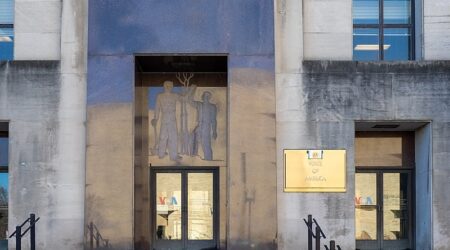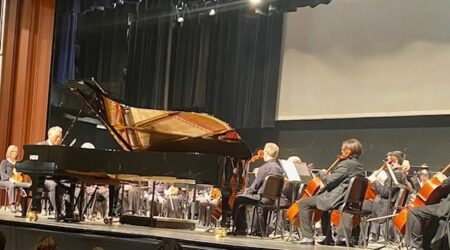On the Virtues of Nesting
I write a lot about the importance of having an authentic travel experience and now I’d like to suggest the type of travel that makes it possible. Everyone is familiar with the cliché “backpacking through Europe” scenario, but I’d like to recommend an alternative that has just as many rewards and less headaches. I […]
 I write a lot about the importance of having an authentic travel experience and now I’d like to suggest the type of travel that makes it possible. Everyone is familiar with the cliché “backpacking through Europe” scenario, but I’d like to recommend an alternative that has just as many rewards and less headaches. I like to call it “nesting.” The idea is that instead of going from place to place and remaining nomadic through the duration of your travels, you decide on a “home base,” a city with easy access to travel, where you rent an apartment or hotel. This way, you avoid the biggest stresses of travel (the luggage, the tight deadlines) and you can still take day trips if you so choose.
I write a lot about the importance of having an authentic travel experience and now I’d like to suggest the type of travel that makes it possible. Everyone is familiar with the cliché “backpacking through Europe” scenario, but I’d like to recommend an alternative that has just as many rewards and less headaches. I like to call it “nesting.” The idea is that instead of going from place to place and remaining nomadic through the duration of your travels, you decide on a “home base,” a city with easy access to travel, where you rent an apartment or hotel. This way, you avoid the biggest stresses of travel (the luggage, the tight deadlines) and you can still take day trips if you so choose.
The act of traveling is one stressful annoyance after another. Oh, your train station doesn’t believe in elevators but your suitcase is enormous? Tough. Are you sure you bought tickets to the right train? Why is your flight being delayed? Is that your stop or the one with a slight variation of the same name? Why is that man staring at you? Despite how common it is to travel, it’s still a fairly difficult process, especially considering that you’re probably in a country that speaks a different language. Even assuming that you don’t encounter the common delays and the unforeseen unpleasantness that is always lurking, you still end up spending enormous amounts of time not enjoying yourself. Not to mention how wonderful it is to finally be able to unpack and feel like a human being rather than a temporary phantom rifling through a suitcase.
I had this realization a year ago when I fully intended to traipse around Europe with my suitcase in tow until I came to the fourth destination on my list and, exhausted, decided that I’d like to remember the cities themselves rather than their airports and train stations. So, I looked online for an apartment to rent for a few weeks, cancelled all further travel, and didn’t look back. The city I chose was Rome. I had been to Rome before, briefly, and I had seen all the obligatory major monuments before and, frankly, I hadn’t been as impressed as I had hoped. This time would be different.
Because I no longer had any time restrictions, I could allow myself to explore areas that I would have otherwise missed. I frequented a neighborhood that I would later learn is known by locals to have some of the best food in Rome. I could also allow myself to become a “regular” at certain establishments. In fact, there was one pub that I visited almost daily because it was a great venue for watching World Cup games, and the staff got to know me quite well. So well, actually, that they felt comfortable in playing a little practical joke. They told me, with unwavering seriousness, that the USA versus Ghana game had been rescheduled. They even picked up a newspaper to show me the announcement. Seeing my momentary fear that I’d miss the game, one of the staff told me not to worry, picked up the phone, and said he would call FIFA for me. Then, we all had a great laugh (at my expense, of course) but it was worth it just to know that I had reached that level of intimacy with them. Plus, that I could now tease them mercilessly about the service.
I had also reached a new level of intimacy with the city, not just geographically, but also with her quirks. Seeing a few Canadian students waiting at an intersection for five minutes, unsure of when to go without near-certain death, I walked right past them into the crosswalk with confidence, knowing that the cars would stop because that’s the way things are done there. The students were grateful and amused at my advice to cross the street without showing fear of death. We chatted for a while as we walked along the same route and they told me that they were on a tour that promises around twenty-four countries in thirty days. Cities had begun to blur into one another for them and they were just “trying to get through it” at that point. I wondered how much you could actually learn of a place from a few supervised hours.
 I believe that in knowing the people, you know the place and you can’t know the people unless you take some time to seek them out. One afternoon in Florence, on the quiet street outside our apartment, I was trying to teach my friend to ride a bike. Many of our curious neighbors stuck their heads out and before long, we had a street-wide dialogue going. Passers-by would stop to offer their own advice. One man saw that the chain had popped off and stopped to fix it on his way to work. He told us about his experience teaching his son to ride a bike and offered suggestions. As a result, we felt like a part of this community and in turn, a part of the city. I doubt this would have happened if Florence were stop number seven on a whirlwind tour.
I believe that in knowing the people, you know the place and you can’t know the people unless you take some time to seek them out. One afternoon in Florence, on the quiet street outside our apartment, I was trying to teach my friend to ride a bike. Many of our curious neighbors stuck their heads out and before long, we had a street-wide dialogue going. Passers-by would stop to offer their own advice. One man saw that the chain had popped off and stopped to fix it on his way to work. He told us about his experience teaching his son to ride a bike and offered suggestions. As a result, we felt like a part of this community and in turn, a part of the city. I doubt this would have happened if Florence were stop number seven on a whirlwind tour.
When you have a tight time budget in a new place, you feel obligated to visit the major “check marks” of the city. But Rome isn’t defined by the Trevi fountain just like San Francisco isn’t defined by the Golden Gate Bridge. Sure, you should see it, but it doesn’t give you any more of a feeling of the place than a postcard would. Instead, a city is defined by the bartender who jokingly teases you for your usual fruity drink, the waiter who appreciates your friendly attitude and proudly lets you try the specialty of his region, it’s the migrant shuttle driver who you discover is actually from your hometown, and the pharmacist that knows you can’t swallow pills but likes to remind you that liquid medicine is for children. In getting to know the people and seeing the ordinary of the city, you see the city itself. So do yourself a favor, trim your ambitious list, settle down, and take the time to insert yourself into a new place.
By Tatiana Sundeyeva
Tatiana Sundeyeva enjoys travel, literature, puns, and anything with an unhealthy sugar content. And not necessarily in that order. She is a graduate of UC Berkeley where she got a degree in English with a minor in Italian.





